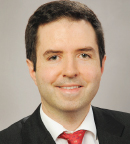
There is a huge effect on tumor cells when we give only two injections of a checkpoint inhibitor. We will be hearing a lot more about this.— Paul Baas, MD, PhD
Tweet this quote
Invited discussant Paul Baas, MD, PhD, of The Netherlands Cancer Institute, Amsterdam, first commented on the need for measures to improve outcomes in early-stage non–small cell lung cancer (NSCLC). “Even in stage I patients, we still have a failure rate of 30% to 40% at 5 years, and that increases to 95% in stage IIIB cancer,” he pointed out. “We really must improve this…. The relapse pattern is mostly systemic, so even early-stage lung cancer should be considered a systemic disease.”
Cisplatin-based adjuvant therapy has not been impressive in protecting against relapse, providing only about a 5% absolute survival benefit. Radiotherapy offers only minimal additional benefit, and most studies of novel agents have been negative, admitted Dr. Baas.
The achievement of responses in this study “indicates there is a huge effect on tumor cells when we give only two injections of a checkpoint inhibitor,” he said. “This is very important.”
Questions Remain
“The study showed that checkpoint inhibitors can be safely administered in the neoadjuvant setting, but there are questions,” Dr. Baas concluded. For example, would combination checkpoint blockade be even better at boosting an immune response in the neoadjuvant setting, and is maintenance therapy needed? Are randomized trials necessary “when the results are this good?” he asked. Studies evaluating neoadjuvant checkpoint inhibition in other tumor types are underway. “We will be hearing a lot more about this.”

Pieter Postmus, MD
Also commenting on the study, Pieter Postmus, MD, Chair of Thoracic Oncology at the University of Liverpool, cautioned that comparing pretreatment biopsies with posttreatment resection samples “is not a validated way to measure response to a treatment. It describes a biological effect, but whether that has any clinical impact on survival is unproven…. Long-term survival data will be the ultimate test for these neoadjuvant immunotherapy strategies.” ■
Disclosure: Drs. Baas and Postmus reported no potential conflicts of interest.


